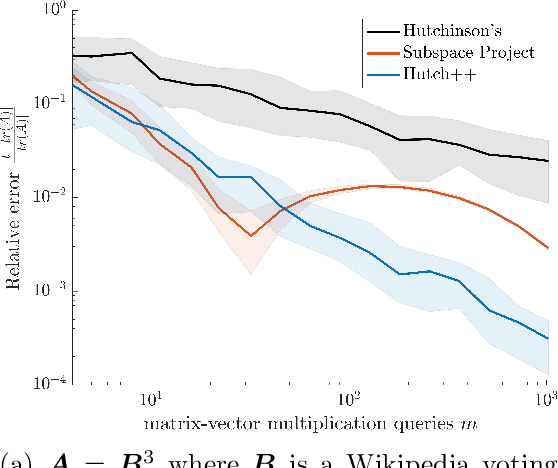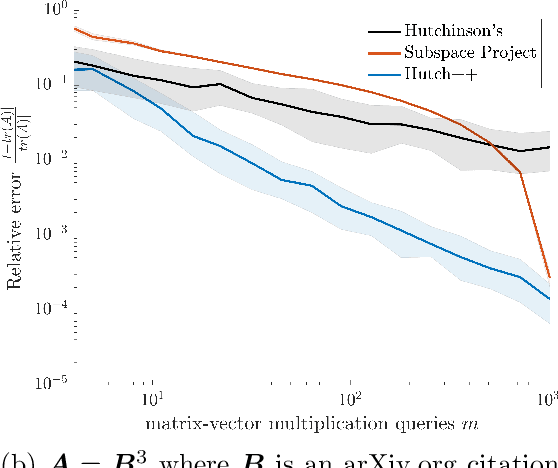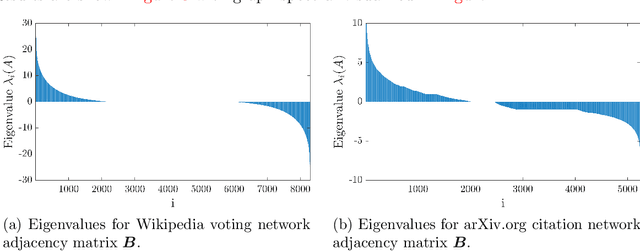Raphael A. Meyer
Hutch++: Optimal Stochastic Trace Estimation
Nov 12, 2020



Abstract:We study the problem of estimating the trace of a matrix $A$ that can only be accessed through matrix-vector multiplication. We introduce a new randomized algorithm, Hutch++, which computes a $(1 \pm \epsilon)$ approximation to $tr(A)$ for any positive semidefinite (PSD) $A$ using just $O(1/\epsilon)$ matrix-vector products. This improves on the ubiquitous Hutchinson's estimator, which requires $O(1/\epsilon^2)$ matrix-vector products. Our approach is based on a simple technique for reducing the variance of Hutchinson's estimator using a low-rank approximation step, and is easy to implement and analyze. Moreover, we prove that, up to a logarithmic factor, the complexity of Hutch++ is optimal amongst all matrix-vector query algorithms, even when queries can be chosen adaptively. We show that it significantly outperforms Hutchinson's method in experiments. While our theory requires $A$ to be positive semidefinite, empirical gains extend to applications involving non-PSD matrices, such as triangle estimation in networks.
The Statistical Cost of Robust Kernel Hyperparameter Tuning
Jun 14, 2020Abstract:This paper studies the statistical complexity of kernel hyperparameter tuning in the setting of active regression under adversarial noise. We consider the problem of finding the best interpolant from a class of kernels with unknown hyperparameters, assuming only that the noise is square-integrable. We provide finite-sample guarantees for the problem, characterizing how increasing the complexity of the kernel class increases the complexity of learning kernel hyperparameters. For common kernel classes (e.g. squared-exponential kernels with unknown lengthscale), our results show that hyperparameter optimization increases sample complexity by just a logarithmic factor, in comparison to the setting where optimal parameters are known in advance. Our result is based on a subsampling guarantee for linear regression under multiple design matrices, combined with an {\epsilon}-net argument for discretizing kernel parameterizations.
 Add to Chrome
Add to Chrome Add to Firefox
Add to Firefox Add to Edge
Add to Edge